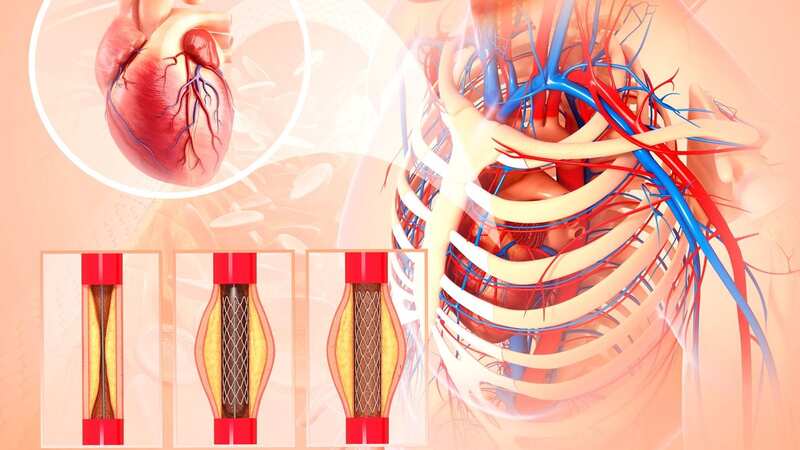'I know so many people whose lives have been changed by heart stents'

Several people I know have had stents fitted and it’s changed their lives. A stent is a tiny tube-shaped device that helps keep narrowed blood vessels open, particularly the coronary vessels that supply the heart.
A stent implanted in a furred up coronary artery will therefore improve chest pain and the patient’s ability to do exercise. In such cases, patients may benefit from a stent, rather than chest pain medication. So say researchers at Imperial College London who evaluated the impact of stents on reducing pain in patients with angina in the ORBITA-2 trial compared to a dummy stent.
Dr Rasha Al-Lamee, a cardiologist at Imperial who led the study, says: “The reality of clinical practice tells us that taking multiple chest pain medications for the long term is often not realistic for patients who are experiencing uncomfortable angina symptoms. Going forward, patients and medical teams have a choice of two pathways for chest pain relief – anti-anginal chest pain medication or implanting a stent. All patients will need to continue medications that reduce their risk of future events such as heart attacks and death.”
A stent is threaded into place via an artery, usually the femoral artery in the groin, under general anaesthesia. Analysis showed that more than one-third of patients who received a stent were free of angina symptoms at the end of the trial. Patients in the stent group were also three times more likely to have no angina than patients who had a placebo procedure. Researchers found that the positive effect of stenting was immediate and continued throughout the 12-week follow-up period, where patients scored their symptoms daily.
Patients who received a stent were also able to exercise for around one minute longer than those who received the placebo procedure. In total, 301 patients were enrolled in the study across 14 sites in the UK.
 Teachers, civil servants and train drivers walk out in biggest strike in decade
Teachers, civil servants and train drivers walk out in biggest strike in decade
Participants and research teams were unaware if they had received a stent or placebo procedure during
the trial. Stenting was not effective for all patients and 59% of those who received one continued to experience chest pain even after a successful procedure.
Patients had 24-hour access to clinical research teams who were also unaware if they had received a stent or
not, and medication was restarted if any of the participants complained of symptoms. Four patients in the stenting group and six in the placebo group subsequently experienced a heart attack.
Read more similar news:
Comments:
comments powered by Disqus

































